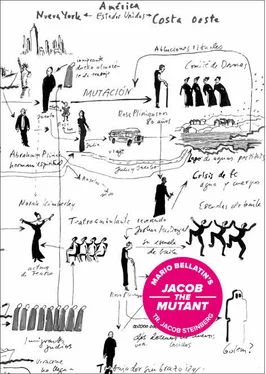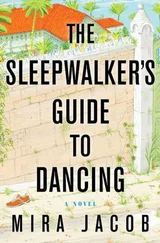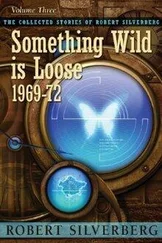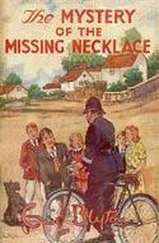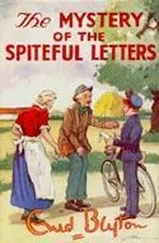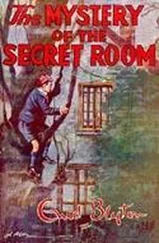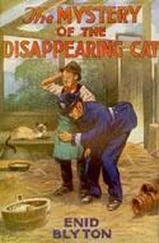Mario Bellatin - Jacob the Mutant
Здесь есть возможность читать онлайн «Mario Bellatin - Jacob the Mutant» весь текст электронной книги совершенно бесплатно (целиком полную версию без сокращений). В некоторых случаях можно слушать аудио, скачать через торрент в формате fb2 и присутствует краткое содержание. Год выпуска: 2015, Издательство: Phoneme Media, Жанр: Современная проза, на английском языке. Описание произведения, (предисловие) а так же отзывы посетителей доступны на портале библиотеки ЛибКат.
- Название:Jacob the Mutant
- Автор:
- Издательство:Phoneme Media
- Жанр:
- Год:2015
- ISBN:нет данных
- Рейтинг книги:3 / 5. Голосов: 1
-
Избранное:Добавить в избранное
- Отзывы:
-
Ваша оценка:
- 60
- 1
- 2
- 3
- 4
- 5
Jacob the Mutant: краткое содержание, описание и аннотация
Предлагаем к чтению аннотацию, описание, краткое содержание или предисловие (зависит от того, что написал сам автор книги «Jacob the Mutant»). Если вы не нашли необходимую информацию о книге — напишите в комментариях, мы постараемся отыскать её.
is a novella in a perpetual state of transformation — a story about a man named Jacob, an ersatz rabbi and owner of a roadside tavern. But when reality shifts, so does Jacob, mutating into another person entirely.
Jacob the Mutant — читать онлайн бесплатно полную книгу (весь текст) целиком
Ниже представлен текст книги, разбитый по страницам. Система сохранения места последней прочитанной страницы, позволяет с удобством читать онлайн бесплатно книгу «Jacob the Mutant», без необходимости каждый раз заново искать на чём Вы остановились. Поставьте закладку, и сможете в любой момент перейти на страницу, на которой закончили чтение.
Интервал:
Закладка:
According to the data taken in the national censuses of the era, around the end of the Great War, Rose changed her last name to the shorter (and less German) Eigen.
In June of 1926, she married Benjamin Steinberg. One year later they had a son. Benjamin was also the child of Jewish immigrants, but unlike Rose, who had been born in these lands, Benjamin’s parents brought him to this continent at three years of age.
Benjamin was seven years older than Rose. When they married, she was nineteen years old.
The family lived in a building on the Lower East Side. In those days the Lower East Side was the main area where one could find Jewish boarding houses.
It was around 1930 or 1931 that everything shifted. That year Rose had an affair with the superintendent of their building. Upon finding out about the affair, Benjamin divorced her, winning sole custody of their son.
Benjamin began to cut up the family photos. He made the bizarre decision to keep the photos that featured Rose, simply removing her face, perhaps so the eyes of that woman whom he hated so much couldn’t be seen.
Very soon after, Benjamin replaced Rose with another woman, for the moment more faithful.
The only persistent reminder of Rose’s existence for the new family was her monthly visits to the son she shared with Benjamin.
Despite the visits, the father taught his son to gradually come to despise his biological mother.
It may be difficult to believe — decidedly more difficult for those uninitiated in the art of the transmigration of souls — but I, Jacob Steinberg, the English translator of Jacob the Mutant , am the reincarnation of that woman, Rose Eigen.
Perhaps I should also make note here that I am her great-grandson.
To better understand the history between Rose and me, maybe I should divide it into mutations.
I believe that the first occurred when my great-grandfather cut up the family photos, leaving only Rose’s faceless silhouette, and almost completely replaced the figure of Rose with that of his second wife, whom he married quite shortly after having been cheated on.
It is for that reason that my grandfather, Rose’s son, acted as though Benjamin’s second wife had been his mother.
It seems that the hostility ran so deep that his father taught him to never refer to his mother by name.
That is why for a good portion of my life I only had an intuition that such a woman formed a part of my family.
I had heard certain allusions, loose facts that clued me in to her existence in the family tree.
Many years had to go by before my grandfather, a nearly eighty-year-old man, felt the inexplicable need for me — his grandson — to at the very least know that woman’s name.
The loose details that I previously knew about that woman, scant as they were, had always been an obsession for me.
When my grandfather revealed her full name to me, I immediately looked for her in the City Municipal Archives.
I researched her parents, the addresses where they lived, and information about the children her brothers and sisters may have had. Perhaps I was searching in those relatives for some memories that somehow belonged to me — memories that I had the purpose of recovering.
My paternal grandmother (who divorced Rose’s son over fifty years ago) was the one who told me the story of Rose (whose name even my grandmother never knew) in more detail.
In her memory remained the fact that, shortly after having been married, she received a letter by mail containing a photograph and a letter.
It turned out to be a missive from her husband’s mother, something that seemed exceedingly peculiar given that there was another woman that she believed was her mother-in-law.
The groom’s mother, introduced as such, had been in the wedding, and it wasn’t possible that her husband had two mothers.
Upon opening the envelope, my grandmother came across a missive and a recent photograph of one Rose Eigen.
Despite the fervor with which my grandmother narrated this incident to me, my grandfather completely denies it.
He does uphold that he stopped seeing his mother after turning eighteen years old — the point at which he and his father were no longer legally obligated to welcome that woman in their home.
My grandmother recalls that her father-in-law, Benjamin Steinberg, was present when she received the envelope, and upon learning of the contents of the envelope, he ripped the photo and the letter to shreds and then threw them into the lit fireplace.
Some might think that the years I spent trying to investigate the details of the life of my great-grandmother were sad ones.
Nevertheless, the chiaroscuro of that character and of how she was presented was, for me, essential. I immersed myself at that time in the mystical studies of my religion, in the body of spiritual knowledge known as the Kabbalah. Furthermore, I experienced a series of important relationships — two in particular — in which I was emotionally shattered by unfaithful men, men who left me to pursue their romantic flings.
At that point in my life, I questioned, among other things, the biophysical structures that define the limits of the body, the ability of two beings to trust in each other and become one. I even came to question something else: the supposed evil of that woman, my ancestor, Rose Eigen. I began to see her as a somewhat embittered and depressed figure, as a young woman who, in moments of extreme ecstasy (comparable to Hasidic dancing) exceeded her structural limits and, as a consequence, missed out on one of the possible lives that awaited her.
The issue around Rose is complicated.
The avid reader must certainly already recognize certain similarities between my great-grandmother’s story and that of the book Jacob the Mutant .
Both the wife of Joseph Roth’s Jacob and my great-grandmother Rose are women who cheat on their husbands, becoming involved with men who are significantly younger (in Rose Eigen’s case, the superintendent of the building where she and her family lived; in the case of the rabbi’s wife, the young Anselm who helped run the tavern).
I find another commonality between my life and Jacob the Mutant : the mystical influence of the Kabbalah, which played a central role both in Jacob Pliniak’s training and during my years of formal academic research.
Furthermore, the transformation of one woman into another, both in the case of the actress Norah Kimberley and in the two wives who appear in Benjamin Steinberg’s family photographs.
Both the author of the book and I, you could say, are people investigating the truth, searching for it within textual fragments contained in different archives.
I’d like to digress here and mention another event that transpired in my personal life. Something independent from my work as the translator of the book Jacob the Mutant .
Approximately one year has lapsed since I had my palm read by one who was an expert in those matters, the daughter of a well-known Kabbalistic rabbi. At the time, I did not know much about that woman’s talents; I was merely certain that she possessed an unmatched talent.
Many details about my life were revealed to me during the course of our session. Details pertaining both to this present life and to others that I don’t remember with precision.
I’d like to share one aspect in particular. The woman spent a great deal of time observing one particular small, curving line. A line that connected my middle finger with my ring finger on my right hand. According to chiromancy, this line indicated that I had a tikkun —a Hebrew word that implies a type of cosmic burden or correction — to be made in this lifetime with men who cheat on their spouses.
She told me that it wasn’t that I was necessarily willing to have affairs, but that that line told her that I did have a tendency to forgive unfaithful men, to love them, even perhaps to the point of actively seeking them out in the wake of some infidelity.
Читать дальшеИнтервал:
Закладка:
Похожие книги на «Jacob the Mutant»
Представляем Вашему вниманию похожие книги на «Jacob the Mutant» списком для выбора. Мы отобрали схожую по названию и смыслу литературу в надежде предоставить читателям больше вариантов отыскать новые, интересные, ещё непрочитанные произведения.
Обсуждение, отзывы о книге «Jacob the Mutant» и просто собственные мнения читателей. Оставьте ваши комментарии, напишите, что Вы думаете о произведении, его смысле или главных героях. Укажите что конкретно понравилось, а что нет, и почему Вы так считаете.
